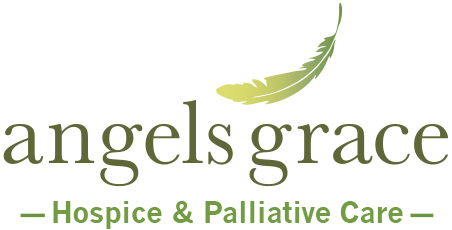
Palliative Care (PC) is often misunderstood and compared or confused with Hospice Care. The common misconception is that you have to be dying to receive the benefits of Palliative Care.
Hospice Care and Comfort (Palliative) Care differ in many ways. First of all, PC is not Hospice Care, but Hospice Care always includes Palliative Care. Confusing, I know – allow me to clarify.
What is Comfort (Palliative) Care?
Palliative Care is comfort care with or without curative intent. Palliative care can help provide relief of symptoms from a life-limiting illness. Palliative care can be provided at diagnosis, during curative treatment and at the end of life.
Palliative Care is considered care for the living, focusing on the whole person. It is available early in the disease process, whether a chronic illness (that may or may not be terminal) or with an acute event. Palliative Care can be provided along with other curative / maintenance therapies. It is considered an extra layer of care in addition to everything the person has in place already (i.e. chemo/radiation, PT/OT, surgery etc.). Palliative Care does not replace the person’s medical team but rather works in collaboration along with their team to provide an extra layer of support. Numerous studies show that people with serious illness and their loved ones live longer and better with PC. Palliative Care is a distinct medical specialty that helps seriously ill people live as well as possible, for as long as possible. It makes a difference in the lives of individuals and their loved ones, by providing support, guidance, and by listening to them – helping through their own personal journey.
The focus of Palliative Care is on quality of life and management of symptoms, helping to relieve pain and stress, along with providing support to individuals and families. It addresses the physical, emotional and spiritual aspects of serious illness. PC helps people identify their goals and wishes with respect to care. Our patients are experts about themselves; we are experts at helping them clarify their goals. These conversations are often the first time a person realizes the seriousness of their situation and illness. PC can provide the comfort they need at this time.
Where Hospice Care is considered end-of-life care (looking at someone as though they might have 6 months or less to live), Palliative Care is so much more. PC follows through all stages of a serious illness, focusing on enhancing the quality of life by focusing on what the patient CAN do, not what they can no longer do. There is no limit as to the length of time a person can be followed by and cared for in Palliative Care.
Angels Grace Palliative Care’s agenda is to really hear what patients and families consider most important, by asking,
“What is your definition of quality of life, what are your goals?”
Angels Grace Palliative Care is also about supporting patients and families through periods of change and potential decline. Conversations are centered around what is important to them, right then and there. They are supported through difficult decisions and trust is then developed. In the event that they progress into Hospice Care, that transition is seamless. They are prepared and feel supported and empowered in their decision. Palliative Care “walks that walk” with them.
“What has surprised me is how little Palliative Care has to do with the death. The death part is almost irrelevant. Our focus isn’t on dying, our focus is on quality of life”.
~ Dr. Balfour Mount, pioneer of the Palliative Care movement
This describes Angels Grace’s Palliative Care. The beauty and essence of Palliative Care is that it is whole person care; respecting the patient for who they are and how they see themselves while supporting them and their loved ones. When going through a serious illness or identifying goals and wishes for care, everyone can use more support, no matter where that journey leads.
Angels Grace Palliative Care is dedicated to helping individuals and loved ones weigh options carefully and objectively, helping to choose treatments wisely, and of course helping them to live as well as possible, for as long as possible. Palliative Care is truly the healthcare team they didn’t know they had. They might not understand it – but after learning about it, they know they want it.
It is the greatest privilege to be a part of their journey, no matter where it leads.
What is Hospice Care?
Hospice care is comfort without curative intent. The patient is no longer eligible for curative treatment due to a life limiting illness or that the patient has chosen to no longer pursue aggressive/curative measures. Hospice care is comfort care that focuses on symptom control, pain relief, and quality of life. Hospice is offered to people facing a terminal illness with a prognosis of 6 months or less based on their physician’s assessment if their disease runs its expected course. Hospice care is delivered in a patient’s home or in home-like hospice residences, nursing homes, assisted living facilities, veterans’ facilities, hospitals and other facilities. At Angels Grace Hospice, we believe that Hospice affirms life! Our mission is to provide physical, emotional, social and spiritual support to terminally ill patients, as well as their families and loved ones while helping patients and families live with dignity and comfort.
Hospice Care recognizes dying as a process and so our hospice care at Angels Grace Hospice provides comfort rather than a cure. An interdisciplinary hospice team at Angels Grace Hospice helps the patient and the family make informed decisions about caregiving, teaches the necessary skills for “hands-on” care and helps with the approaching and actual death. Hospice treats the patient, not the disease. The focus is on the care, not the cure.
At Angels Grace Hospice we consider your entire family, not just the patient, as the “unit of care”. Patients under Angels Grace Hospice care have access to a team of professionals that are under the direction of a physician and/or the Hospice Medical Director. Hospice services include Nursing, Physician Services, Medical Social Services, Hospice Aide/Homemaker Services, Physical, Occupational and Speech Therapy, Volunteer Services, Spiritual, Dietary, Pet Therapy, Reflexology and Bereavement Counseling.
- The Primary Care Nurse will coordinate the patient’s care. The role of the nurse is to prevent and relieve pain and other symptoms, and to teach caregivers to provide for your care. The nurse will ensure medical supplies and equipment are ordered, and will assist in managing medications.
- Social workers provide emotional support, counseling, and guidance to the patient and family in coping with stress related to the illness. They will identify any community resources that are available to you. They can help with placement for nursing homes, and also provide support and information for funeral arrangements.
- Medical Directors collaborate with the patient’s primary physician, consult on pain and symptom management, and are responsible for the palliation and management of your terminal illness and any conditions related to that illness.
- Hospice Aide is supervised by our registered nurse and assists with personal care on a part-time basis. Our aides have experience in caring for people in need and have been carefully chosen to provide care for the patients of the hospice. They assist with personal care which may include bathing, hair care, shaving, skincare, linen changes, catheter care, etc. Hospice aides are not allowed to dispense medications. They will report any changes in the condition of the patient to the appropriate team member at Angels Grace Hospice.
- Chaplains offer spiritual support to our families and patients as they cope with the issues that arise during this time. Hospice spiritual care is based on a high respect for the patients’ and caregivers’ personal faith and belief. The services include regular pastoral visits, being on call and available for crisis, conducting funeral and memorial services as requested, contacting the patient’s personal clergy, etc.
- Volunteers are a vital part of hospice. They are carefully selected and well trained working alongside the Angels Grace Hospice Care Team. These special people provide many different types of support for the hospice program and those dealing with personal loss and grief. They are good listeners, non-judgmental, adaptable, and have a strong desire to reach out with love and concern to others. They can be used on a regular basis or on an as-needed.
Hospice will also provide patients with medical equipment, supplies, and medications needed to maintain comfort. Hospice supports the family. After a patient dies, hospice addresses the emotional and spiritual pain suffered by loved ones for more than a year.
. . . .
Angels Grace Hospice, located in Bolingbrook, IL provides a customized care plan to meet the specific needs of patients. We provide comfort care in your home, hospital, nursing home or assisted-living facility depending on your individual circumstances.
Contact us with any questions and for further assistance with your end-of-life care options.

